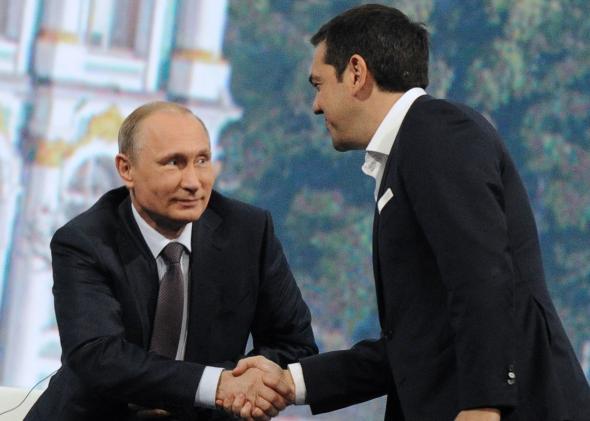If you want some perspective on Europe’s current debt crisis, consider the fact that Chinese stocks have fallen by a value 10 times Greece’s entire GDP, with nary a peep from the Greek-obsessed international media.
But even if the scale of Greece’s woes seem small by Chinese standards, Beijing is still concerned with what happens this weekend, particularly due to concerns that if the situation isn’t resolved, it could drag down economies throughout the EU, China’s largest trading partner. By coincidence, Prime Minister Le Keqiang was in Brussels this week for an annual China-EU summit and said that China is hoping for a resolution that keeps Greece within the eurozone, saying it concerns not just Europe but “world financial stability and economic recovery.”
Still, the prospect of a Greek exit from Europe and a collapse of the bailout has led to some speculation about whether China could turn the situation to its advantage. China has leant money to countries that have defaulted on their debts before, notably in Latin America, and it may see a political advantage in stepping in when Europe failed to. As Frida Ghitis of the World Politics Review notes, China has often lent money to countries, such as Venezuela, that other investors wouldn’t go near.
If history is a guide, China would be less interested than the EU in reforming Greece’s governance and domestic economic policies, so long as Greece committed to policies that provide advantages for Chinese trade and, perhaps, a reliably pro-China foreign policy. As BBC China editor Carrie Gracie points out, closer ties to Greece could be advantageous to China as it looks to construct an ambitious new trade route through Central and Southern Asia through the Mediterranean and Europe. Whether these soft power benefits are worth being stuck with billions in unrecoverable Greek debt is another story.
There’s been even more speculation about the prospect of Russia stepping in to bail Greece out. The Kremlin has helped out debt-addled the Mediterranean before, granting a 2.5 billion euro emergency loan to Cyprus in 2011. Despite its current economic predicament, Russia still has about $350 billion in foreign exchange reserves that it could conceivably spend on buying influence and undermining European unity.
Greece’s ruling Syriza party is fairly pro-Russian, opposing EU sanctions against Vladimir Putin’s government. Greece recently signed on to host part of a new pipeline bringing Russian gas into Europe. Shortly afterward, Tsipras gave the keynote address at an economic forum in St. Petersburg hosted by Putin, highlighting the importance of ties between the two countries. The German magazine Der Spiegel reported that Russia had agreed to give Greece a loan of up to $5 billion as an advance on profits from the pipeline, though the Russian government denied it. The Kremlin also denied Russian media reports that it had offered Greece membership in the new BRICS development bank being formed by Brazil, Russia, India, China, and South Africa.
Still, the Russians have left open the possibility of further economic cooperation in exchange for concessions to Russian business. Finance Minister Anton Siluanov said back in January that Russia would “definitely consider” a Greek request for aid. Vladimir Chizov, Russia’s ambassador to the EU, said this week that while Greece has not yet appealed for direct financial aid, “We have the ability of increasing our economic co-operation, in particular Greece has the ability of privatizing, including railroads and the port [in Thessaloniki].”.
Despite these hints, a Russian lifeline for Greece is probably still unlikely. Battered by both low oil prices and western economic sanctions, Russia is burning through its reserves fast without much relief in sight. With at least $271 billion in debt to its international creditors, the Greek crisis is an entirely different situation than tiny Cyprus, which historically had a much closer relationship with Russia.
It would be a mistake for Greece’s government to count on help from Russia (or China for that matter) if things take a turn for the worse with Europe. But it’s probably still advantageous for Greece and Russia if the lenders in Brussels think it’s a possibility.
Read more of Slate’s coverage of the Greek financial crisis.
